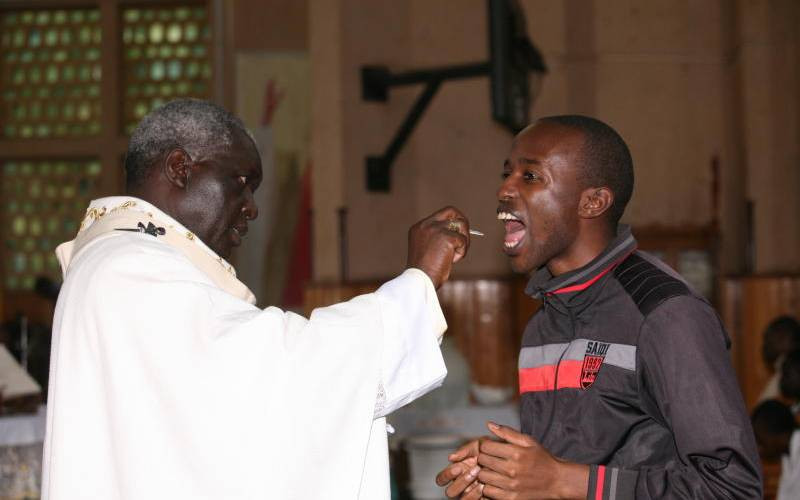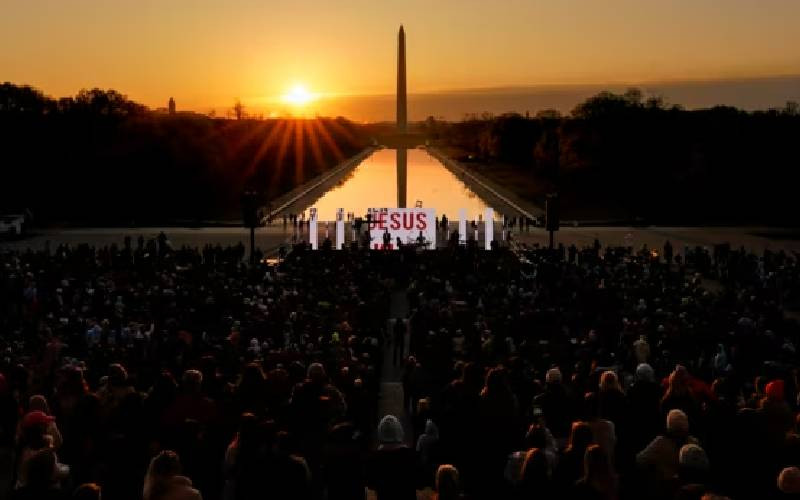It is that time of the year when our Christian brothers celebrate Xmas festivities to mark the birth of Jesus. And it is an opportune time to look at the doctrinal relationship between Islam and Christianity, two of the great divine faiths in the world. Perhaps, most Christians may not know that Islam, Judaism and Christianity share same origins and have many similarities, and hence often referred to as Abrahamic faiths by theologians.
Christians believe Jesus is a Son of God, and worship him. Muslims believe Jesus is the Messiah prophesied in the Torah, and a Messenger of the Word of God. The Jews believe Jesus was not a Prophet but an imposter. The main point of departure between Islam and Christianity is the divinity the latter attaches to Jesus. Muslims believe Jesus is one of the greatest Messengers of God, alongside others equally highly revered in the Quran, such as Abraham, Moses, Noah and Muhammad, may peace be upon them all.
Islam totally rejects the concept of the divinity of Jesus which is predicated on the doctrine of trinity. It emphasises the oneness of God and refutes the view that God can beget a Son. Muslims, however, believe that Jesus was born miraculously to Virgin Mary, a chaste woman highly devoted to the service of God and after whom a chapter of Quran is named. His miraculous birth is described in the Quran in similar terms as that of our forefather, Adam, who had no father and mother.
He did not marry as alleged by some Christian theologists, nor did he have any children.
Muslims believe Jesus had the power to heal the sick, raise the dead and perform other miracles, with the permission of God, a fact that he alludes to in the scriptures. That he was able to do them with the permission of the Father in heaven makes it apparent that he personally did not have divine powers. In Christianity then, his divinity forms the basis of his worship. Islam disagrees that any human being is worthy of worship, including Prophet Muhammad.
Muslims also believe, as Christians do, that Jesus ascended to heaven, and that he will return some day before the Day of Judgement. However, the two faiths disagree on his role, and the reason for his return. The Muslims believe that he will return in order to prove his mortality, as indeed every soul has to taste death, and also to refute the false beliefs about him.
Another point of departure between the two faiths is the death and crucifixion of Jesus. Christians believe that Jesus died on the Cross but was resurrected, after which he ascended to heaven. The Quran teaches that Jesus was not killed by the Romans but was made to appear that way in order to deceive them.
Islam shares the view that the Romans and the Jews did not like the work of Jesus and plotted to kill him.
Muslims disagree with the concept of the Original Sin, or that Jesus died for our sins and hence he is the saviour. Islam teaches that all human beings commit sin and must repent to God for forgiveness. It emphasises that God’s grace alone is not enough to save us from punishment in the Hellfire, and we must have true faith and good deeds. In Quran 39:7, it underscores this doctrine when it states that ‘no bearer of burdens shall bear the burden of another’.
Muslims also believe that Jesus was sent unto the Jews with the same message of all his predecessors; that of submission to God. Even in the Bible, he confirmed the Torah, lived by its teachings and instructed his disciples to follow them in Mathews 5:17-18 ‘think not that I have come to abolish the law and the (way of) the prophets; I have come not to abolish them but to follow them’.
As Christians celebrate Xmas, there is need for genuine followers of these two divine faiths to enhance their understanding of each other and work together to steer our great nation to peace in these turbulent times.
 The Standard Group Plc is a
multi-media organization with investments in media platforms spanning newspaper
print operations, television, radio broadcasting, digital and online services. The
Standard Group is recognized as a leading multi-media house in Kenya with a key
influence in matters of national and international interest.
The Standard Group Plc is a
multi-media organization with investments in media platforms spanning newspaper
print operations, television, radio broadcasting, digital and online services. The
Standard Group is recognized as a leading multi-media house in Kenya with a key
influence in matters of national and international interest.
 The Standard Group Plc is a
multi-media organization with investments in media platforms spanning newspaper
print operations, television, radio broadcasting, digital and online services. The
Standard Group is recognized as a leading multi-media house in Kenya with a key
influence in matters of national and international interest.
The Standard Group Plc is a
multi-media organization with investments in media platforms spanning newspaper
print operations, television, radio broadcasting, digital and online services. The
Standard Group is recognized as a leading multi-media house in Kenya with a key
influence in matters of national and international interest.









